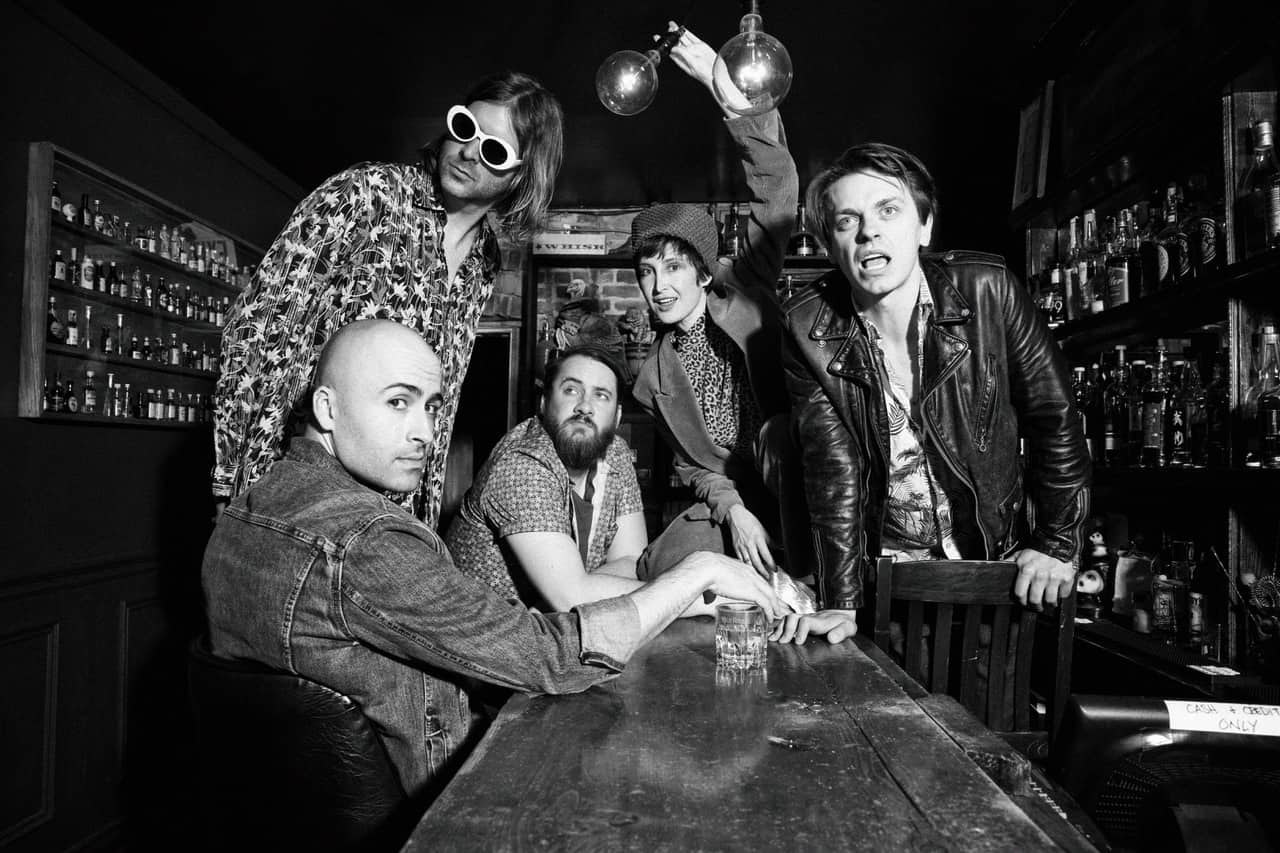
July Talk is known for their electrifying live shows and the stark but alluring contrast between the voices of the two lead singers. However, people are less privy to how they use their platform for activism.
Ever since the Toronto-based five-piece band started making music in 2012, July Talk has been neither shy nor quiet about their beliefs. As the band grew in popularity, they found that it became “much more important” to use their platform to speak about issues, says lead singer Peter Dreimanis.
The band has been very active in their support of marginalized groups and urging their fellow Canadians to do better for our country. This can be seen in their music workshops with a First Nations high school in Thunder Bay and their solidarity with the Unist’ot’en camp.
Rock and roll has a rich history when it comes to activism. From fuelling social changes to its penchant for standing up to authority, rock and roll has always been about questioning society’s status quo.
Between Arkells’ involvement in giving back to the community, and Arcade Fire’s PLUS1 initiative to raise money for Haiti, Canadian musicians seem to know the importance of doing their part to give back.
In the case of July Talk, using their platform to give a leg up to Indigenous people who are traditionally marginalized instead of speaking over them — or for them — has also been a priority.
“I’d rather focus on or listen to Indigenous voices talking about [issues] rather than mine because I am no expert. But I read what I can, and I try to learn more about things, and I think that we have a lot of changing to do… Right now it’s not a very equal playing field,” Dreimanis said.
Canada’s treatment of its Indigenous community has a long and dark history that is still in the midst of being addressed and reconciled. On the road to reconciliation, it is imperative that Indigenous voices are heard and at the forefront of their fight for equality.
In their activism, July Talk avoids infringing on the communities that they are giving a platform to. However, they sometimes find their activist sentiments bleed into their music. Though they do not set out to write political music, they cannot always control what comes out when they sit down to write.
“It’s not exactly an intentional thing to say, ‘I’m going to write a song about this,’” he said. “You write songs about what you’re feeling, and I think we probably interact with [issues] in a different way when it comes to our art than we do in our lives.”
Though their last two albums dealt more with societal issues, their upcoming album is more about looking inwards than outwards.
“It’s probably a bit more of a personal album with less talking to the world, and maybe a little bit more looking inside ourselves and hoping that people can relate… I think a lot of songwriters that I really look up to sort of do that instead of trying to tell the world how to live. I’m a bit suspicious of anyone who tries to tell anyone else how to live,” he said.
July Talk has a special relationship with Saskatoon seeing as the city was one of the first the band toured to. Coming back to the prairies has always felt like coming home to them. Longtime fans may even remember both lead singers Leah Fay and Peter Dreimanis performing at the Vangelis Tavern, now known as the Black Cat Tavern.
Fans can look forward to their new album set to be released later this year.
—
Tomilola Ojo / Culture Editor
Photo: Vanessa Heins / Supplied
Leave a Reply